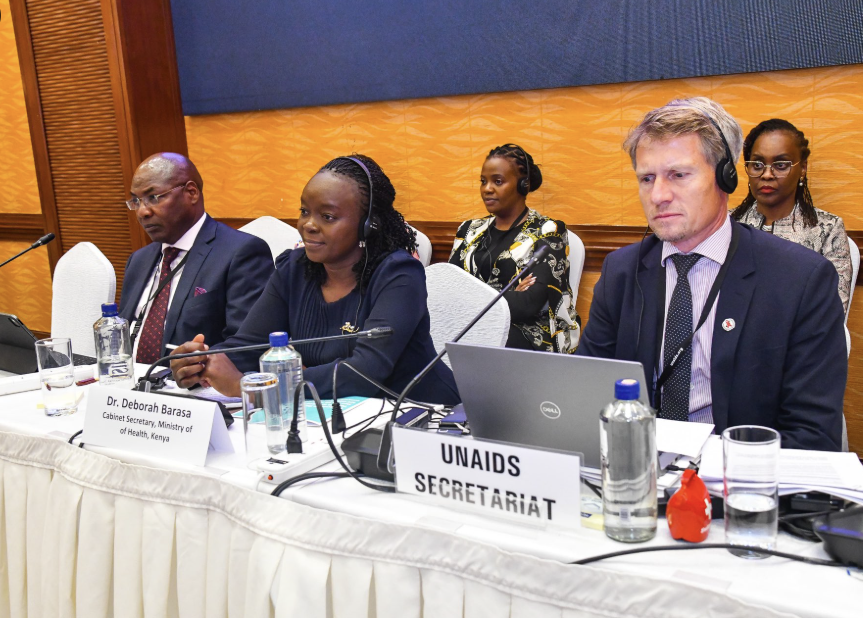

Health Cabinet Secretary Deborah Barasa has challenged African government to fill the gaps left by reduced donor funding in the war against HIV/Aids.
Speaking during the UNAIDS 55th Programme Coordinating Board meeting at Serena Hotel, the first one on the African continent in 18 years, Barasa said the world is not on track to meet the 2025 targets.
“UNAIDS has been instrumental in coordinating a global multi-sectoral response that has saved millions of lives. However, reduced contributions from significant donors have left the organisation vulnerable,” the CS noted.
Barasa said uneven progress, inequalities such as access to treatment, suboptimal political and financial support, and dwindling global commitment threaten the goal of ending AIDS by 2030.
She noted that UNAIDS has been instrumental in coordinating a global multi-sectoral response that has saved millions of lives.
Barasa said Kenya’s financial support, including hosting this 55th PCB meeting, underscores the country’s trust in UNAIDS.
“We urge African nations to join us, not to fill the gaps left by reduced contributions, but to send an important political message and reaffirm our collective commitment that Africa and the world still need UNAIDS to lead this response through 2030,”she said.
She called on the meeting to focus on a fit-for-purpose joint programme and the mid-term review of the Global AIDS Strategy.
“Reflecting on 2006, when the board last convened in Africa, the situation was vastly different—antiretroviral therapies reached few, stigma was rampant, and communities were devastated,” the CS said.
“Today, global progress is evident—fewer new HIV infections in 2023 than at any point in the late 1980s. Almost 31 million people are receiving lifesaving antiretroviral therapy around the world, reducing AIDS-related deaths to their lowest level since the peak in 2004.”
Barasa termed as remarkable the 73 per cent reduction in new HIV infections among children aged 0-14 in eastern and southern Africa between 2010 and 2023.
“Here in Kenya, we recorded a commendable 83 per cent reduction in new HIV infections and a 65 per cent decline in AIDS-related deaths over the last decade,” Barasa added.










